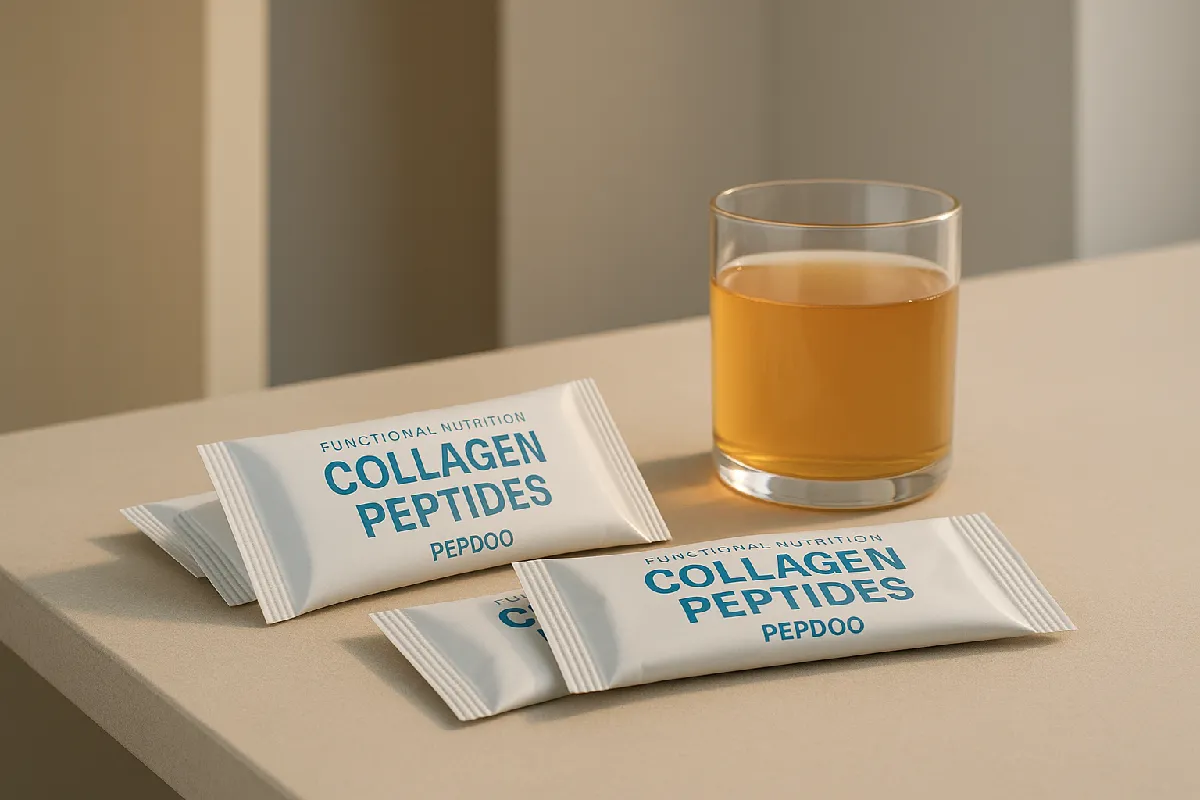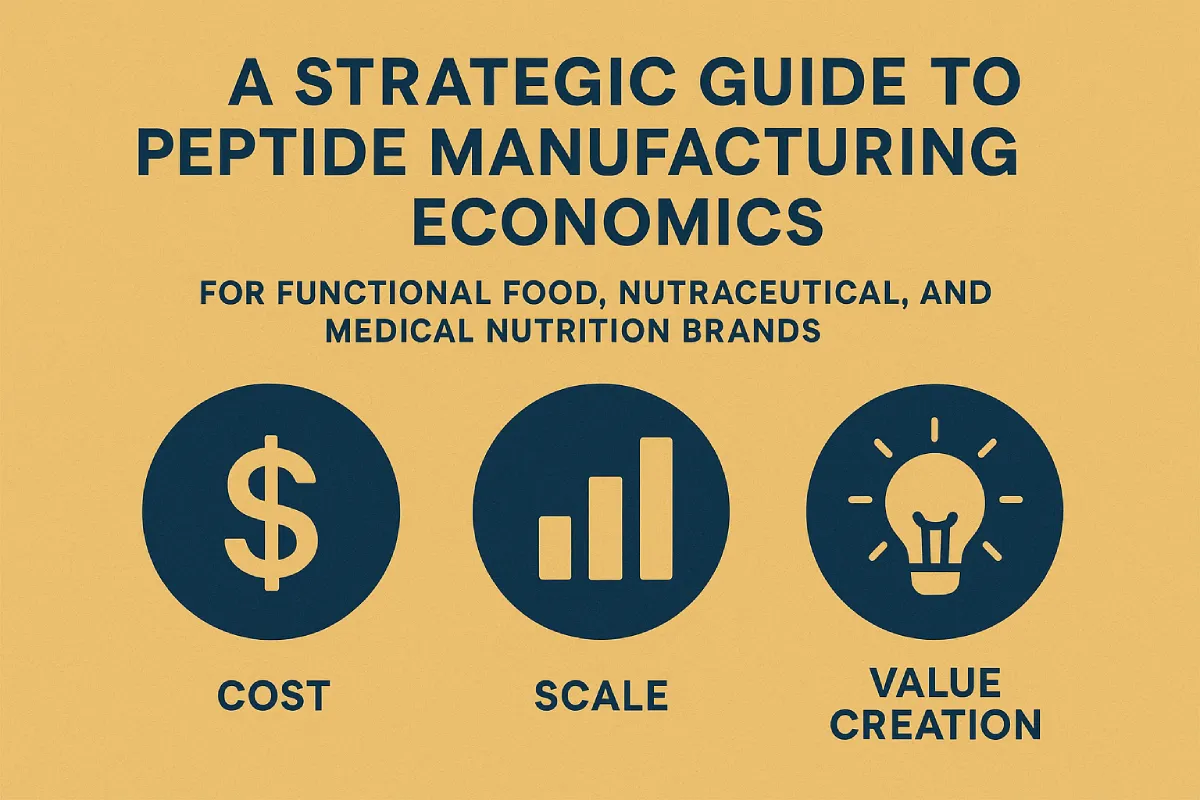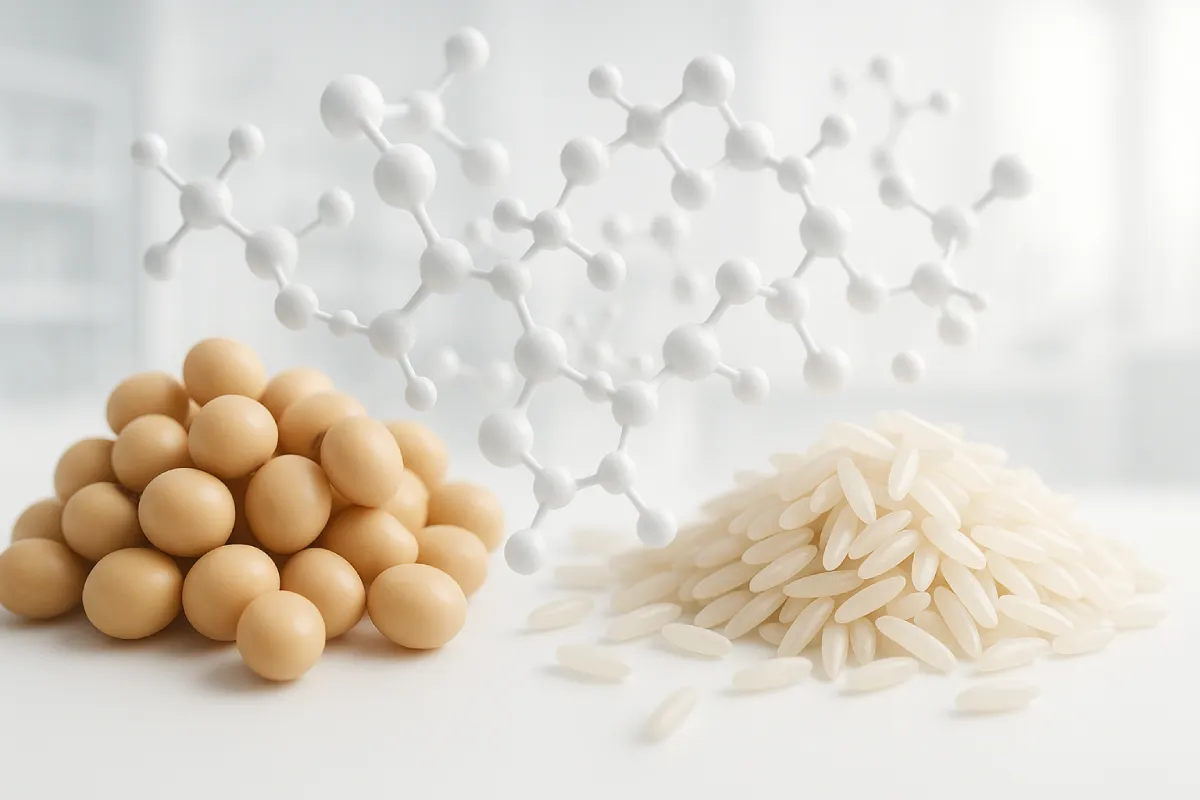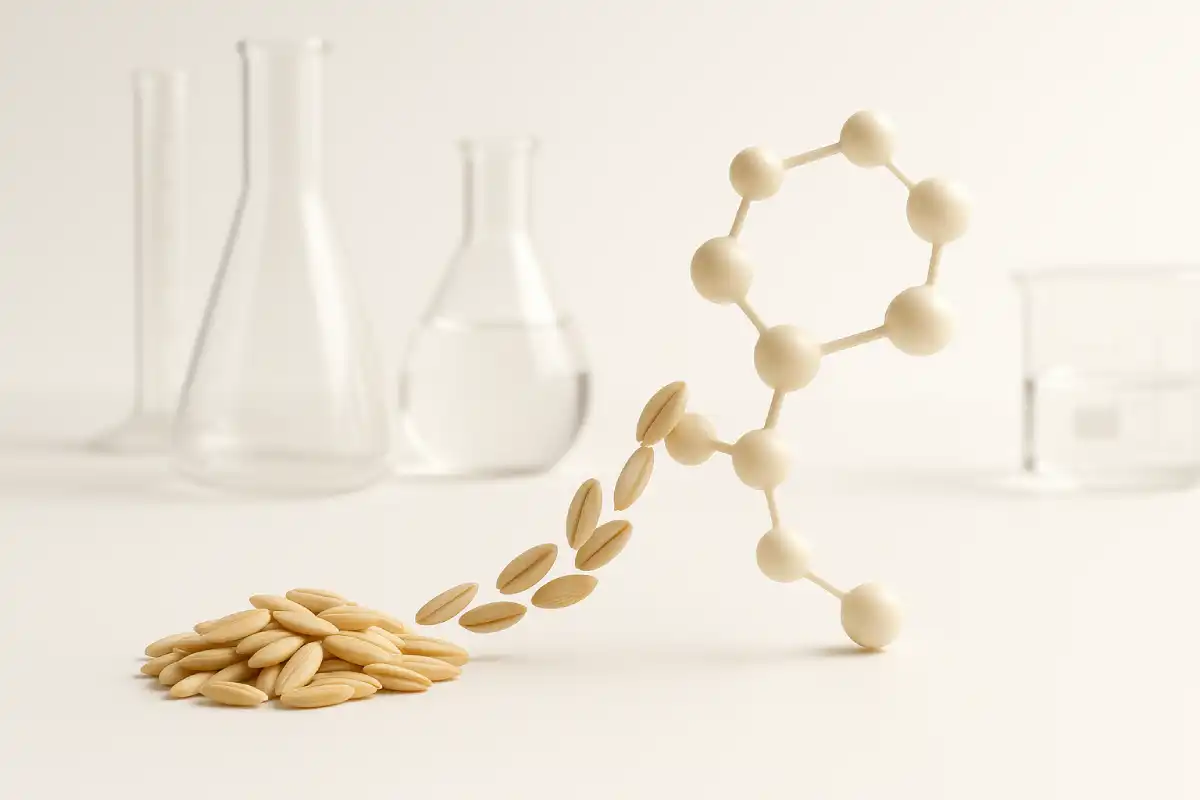The Rise of Clean Label in Functional Nutrition
The global nutrition landscape is undergoing a significant transformation. As consumers become increasingly health-conscious and ingredient-savvy, the demand for “clean label” products has surged. In parallel, functional nutrition — food and supplements designed to deliver specific health benefits — is dominating new product development across categories from sports to beauty nutrition.
In this evolving market, peptides have emerged as a strategic ingredient that bridges both worlds: offering scientifically backed bioactive functionality while aligning with clean label standards. This article explores how bioactive peptides are positioned within the clean label and functional nutrition space, the opportunities they bring to brands, and the challenges to navigate.
What Is Clean Label?
“Clean label” is more than a marketing buzzword — it’s a movement toward transparency, simplicity, and naturality. Although there is no regulatory definition, a clean label product is typically expected to:
- Contain minimal and recognizable ingredients
- Exclude artificial additives, colors, sweeteners, and preservatives
- Feature non-GMO, allergen-free, or sustainably sourced components
Consumer expectations for clean label products are evolving. According to recent surveys, over 70% of global consumers consider the ingredient list before purchasing food or supplements [1]. Transparency, ethical sourcing, and traceable supply chains are no longer optional — they’re demanded.
Functional Nutrition: Precision Meets Purpose
Functional nutrition refers to the use of food, beverages, or supplements that go beyond basic nutrition to deliver targeted physiological benefits. These include areas such as:
- Immune support
- Skin and hair health
- Joint and bone strength
- Metabolism and weight management
- Cognitive performance and sleep quality
Consumers today seek personalized wellness solutions, often preferring natural alternatives over synthetic ones. This has created a clear synergy between clean label demands and the functional nutrition movement, driving innovation toward ingredients that are both effective and naturally derived.
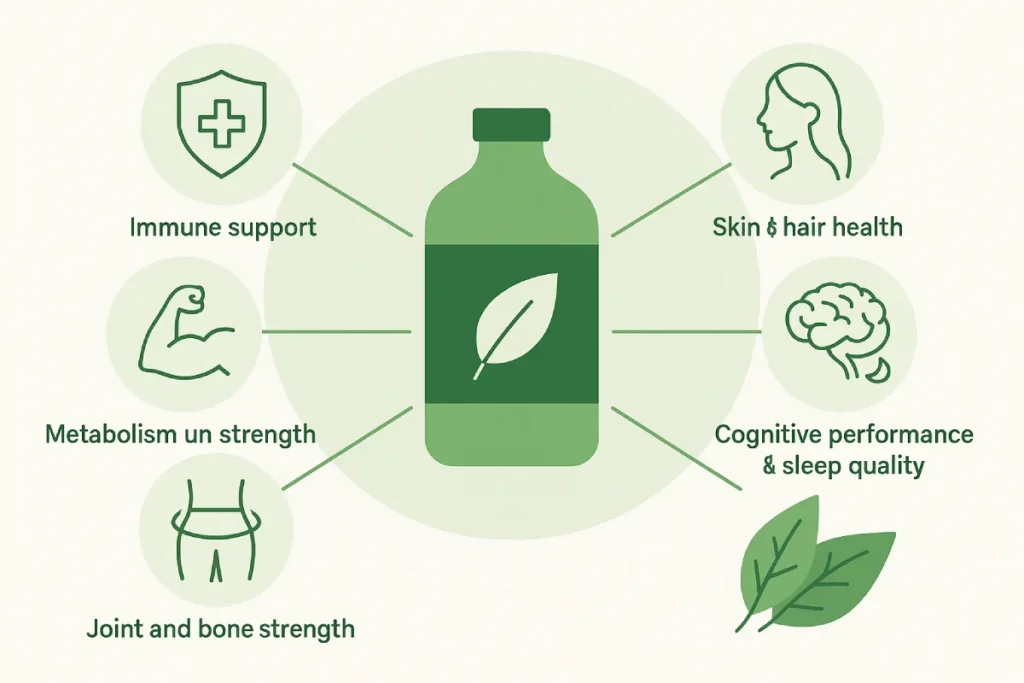
Where Peptides Fit In: The Clean Label Advantage
Peptides — short chains of amino acids derived from proteins — are widely used in functional formulations for their high bioactivity and proven benefits. What makes peptides particularly appealing in the clean label context?
1. Natural Origins
Most commercially used peptides are enzymatically hydrolyzed from natural sources like fish collagen, soy protein, egg albumin, casein, or even plant-based proteins such as oats and rice. Enzymatic hydrolysis, especially using food-grade enzymes, is considered a “clean” processing technique compared to chemical hydrolysis [2].
2. Potent at Low Doses
Peptides are highly bioavailable and effective in small doses, which reduces the need for large amounts of active ingredients and associated fillers or carriers — simplifying formulation and improving the chance of maintaining a clean label profile.
3. Free From Artificial Additives
Unlike synthetic compounds or complex extracts, peptides do not require artificial colorants or stabilizers to maintain efficacy. In fact, many are stable under standard processing conditions and can be incorporated into capsules, powders, or beverages with minimal excipients.
Clean Label Formulation with Peptides: Key Considerations
While peptides offer a clean label advantage, not all formulations automatically qualify. Successful development of clean label peptide products requires attention to multiple elements:
Ingredient Sourcing Transparency
Brands must work with peptide manufacturers that provide:
- Full traceability of raw materials (e.g., marine collagen sourced from certified fisheries)
- Non-GMO declarations
- Clean and certified hydrolysis processes (e.g., Halal, Kosher, ISO22000, CNAS-certified labs)
At PEPDOO®, we go beyond the basics of compliance — we set the benchmark for clean and transparent peptide sourcing. Every ingredient we use is fully traceable and responsibly sourced, ensuring consistency and quality from origin to output. Our advanced peptide production facilities are certified to the highest global standards, including ISO22000, CNAS, Halal, and Kosher. Whether you’re developing clean label supplements, functional beverages, or beauty-from-within formulations, PEPDOO® delivers the confidence, credibility, and clean-label integrity your brand deserves.
Minimal Processing Additives
To maintain a clean label status, it’s essential to avoid artificial sweeteners (e.g., sucralose), synthetic flavors, or preservatives like sodium benzoate. Natural carriers such as maltodextrin, if used, must be non-GMO and clearly labeled.
Synergistic Formulations
Peptides can be paired with other clean label ingredients like:
- Plant extracts (e.g., turmeric, ginseng)
- Fermented botanicals
- Natural flavoring agents (lemon juice powder, coconut water)
- Prebiotics and postbiotics
This opens the door to complex but clean multifunctional products.
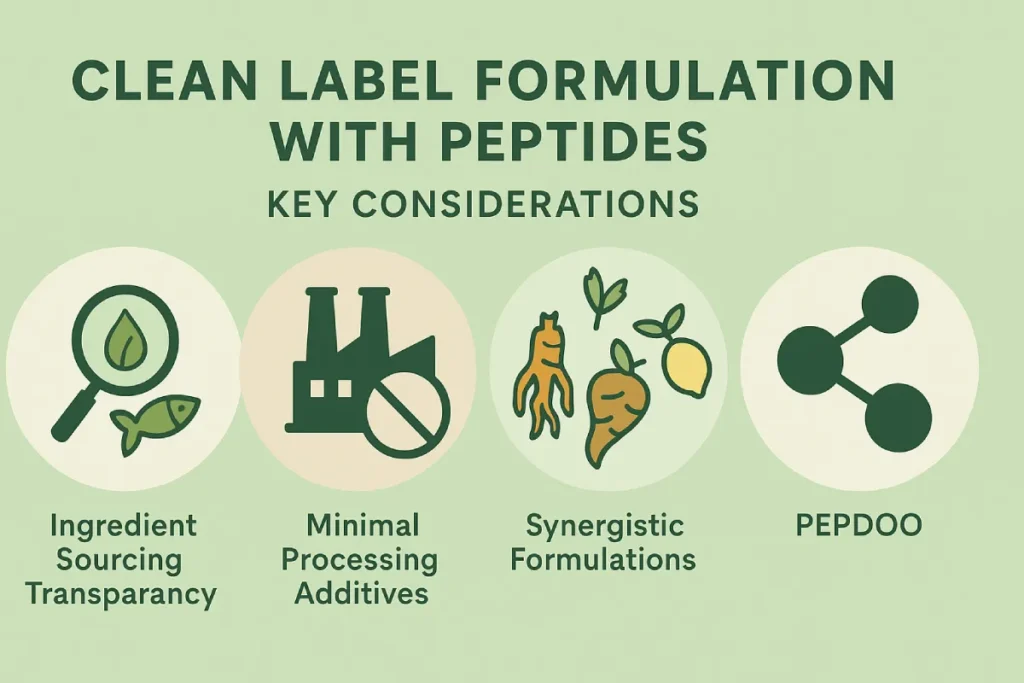
Market Trends & Consumer Insights
According to Innova Market Insights, clean label claims now appear on over 60% of global food and supplement launches [3]. Meanwhile, the bioactive peptide market is expected to exceed USD 4.5 billion by 2027, driven by demand in sports nutrition, skin health, and immune support sectors [4].
Regional Insights:
- North America: Clean label collagen and plant-based peptide beverages are booming.
- Europe: Focus on sustainability and regulatory compliance — especially in skin and joint health.
- Asia-Pacific: Rapid growth in peptide-enriched beauty and metabolic supplements, particularly among younger consumers.
Consumers increasingly seek holistic wellness solutions that are “natural yet effective” — exactly where peptides thrive.
Regulatory and Labeling Landscape
Although clean label itself is not a legally defined term, products must still adhere to labeling laws in different jurisdictions. Brands must avoid misleading claims and ensure:
- Proper declaration of peptide sources (e.g., “Hydrolyzed Fish Collagen Peptides”)
- Functional claims are supported by scientific literature
- No “health halo” is created via unsubstantiated clean label positioning
In the EU and the US, the regulatory focus remains on ingredient transparency, substantiation of functional benefits, and truthful marketing [5].
Innovation Spotlight: Clean Label Peptide Product Concepts
Peptide innovation is rapidly expanding into formats that align with clean label values. Examples include:
- Ready-to-drink collagen waters with no added sugar or preservatives
- Plant-based protein + peptide blends targeting vegan consumers
- Functional snack powders combining oat peptides, fermented fruits, and gut-friendly fibers
- Sachet-packed immune shots with egg white peptides and acerola extract
Sustainability is also key — brands are turning to recyclable pouches, biodegradable sachets, and upcycled marine collagen sources to enhance clean appeal.
Challenges and Opportunities Ahead
While peptides are naturally aligned with clean label values, several challenges remain:
Taste & Solubility
Some peptides have inherent bitterness or fishy odor, especially marine-sourced varieties. Clean label demands limit the use of masking agents, prompting the need for better purification and flavor-modulation technologies.
Cost of Compliance
Maintaining certifications (e.g., Non-GMO, Halal, Organic) adds complexity and cost. However, these investments build trust with B2B buyers and end-users alike.
Education Gap
Many consumers and even B2B buyers are unaware of the difference between peptides and general protein hydrolysates. Education through clean and transparent branding is essential to unlock their full potential.
Conclusion: The Future of Peptides in Clean Label Nutrition
Clean label and functional nutrition are no longer separate trends — they are converging into a new standard for the food and nutraceutical industries. Peptides, with their natural origin, high efficacy, and minimal need for processing aids, are ideally suited to lead this transformation.
For B2B brands, peptide-based solutions represent an opportunity to:
- Differentiate with science-backed efficacy
- Build trust with consumers through transparency
- Capture the growing demand for clean, functional, and effective products
As technology advances and consumer awareness increases, peptides will remain a cornerstone of the clean label functional nutrition revolution.
✅ Looking for Clean Label Peptides That Meet Global Standards?
Connect with the PEPDOO® Peptide Innovation Team to access technical whitepapers, clean-label certification data, or explore OEM-ready solutions.
Our bioactive peptides are trusted by functional food and supplement brands across 30+ countries.
We'll get back to you within 24 hours – guaranteed.
Frequently Asked Questions About Clean Label Peptides
Peptides qualify as clean label when they are derived from natural sources such as fish collagen, soy, or oat protein, and produced using food-grade enzymatic hydrolysis. A true clean label peptide should be free from artificial additives, non-GMO, and processed under certified, transparent manufacturing systems such as ISO22000, Halal, Kosher, or CNAS.
Yes. Peptides are considered both safe and effective for various health applications, including skin rejuvenation, muscle recovery, immune regulation, and metabolic balance. Their small molecular size ensures fast absorption and high bioavailability, enabling low-dose effectiveness that aligns with minimalist, clean-label formulations.
The most frequently used sources include marine collagen (from sustainably harvested fish), egg white protein (albumin), soy, casein, and oats. These raw materials are selected not only for efficacy, but also for their ability to meet clean-label expectations through mild enzymatic processing and traceable sourcing.
B2B brands should collaborate with manufacturers who provide full traceability from raw material origin to final product. This includes documented sourcing (e.g., certified fisheries, non-GMO soy), verified manufacturing processes, and third-party testing reports.
At PEPDOO®, we strictly adhere to these principles — all our peptides are produced using non-GMO ingredients, clean hydrolysis technologies, and certified systems including ISO22000, CNAS, Halal, and Kosher. We empower our clients with traceable, trustworthy peptide solutions for today's health-conscious consumers.
Yes, though it requires attention. Some peptides, especially those from marine sources, may introduce bitterness or off-notes. Solutions include selecting high-purity peptides, using naturally neutral-tasting sources like soy or oat, and applying clean flavor-masking strategies without synthetic additives.
Clean label peptides are highly adaptable. The most successful formats include ready-to-drink shots, functional beverages, sachet powders, capsules, and bars. These forms allow formulators to create effective, transparent, and user-friendly products with minimal excipients.
While “clean label” is a consumer-driven concept rather than a regulated term, all health-related claims must follow local food and supplement laws (e.g., FDA, EFSA, CFDA). Brands must provide
PEPDOO® peptides are crafted through patented multi-enzyme hydrolysis and advanced nano-purification without any harsh chemicals. With certifications like ISO22000, Halal, Kosher, and CNAS, our solutions meet global clean label standards. We offer not only potent peptides, but also full documentation, batch-to-batch consistency, and marketing-ready support for B2B innovation.
References
- Nielsen. (2023). What’s in our food and on our mind: Ingredient and clean label trends around the world.
- Rutherfurd-Markwick, K. J., & Moughan, P. J. (2021). Bioactive peptides derived from food. Annual Review of Nutrition, 41, 9.1–9.24.
- Innova Market Insights. (2024). Top Trends in Food & Beverage: Clean Label Evolution.
- Grand View Research. (2023). Bioactive Peptides Market Size Report, 2023–2030.
- European Food Safety Authority (EFSA). (2022). Scientific and technical guidance for the preparation and presentation of health claims.


